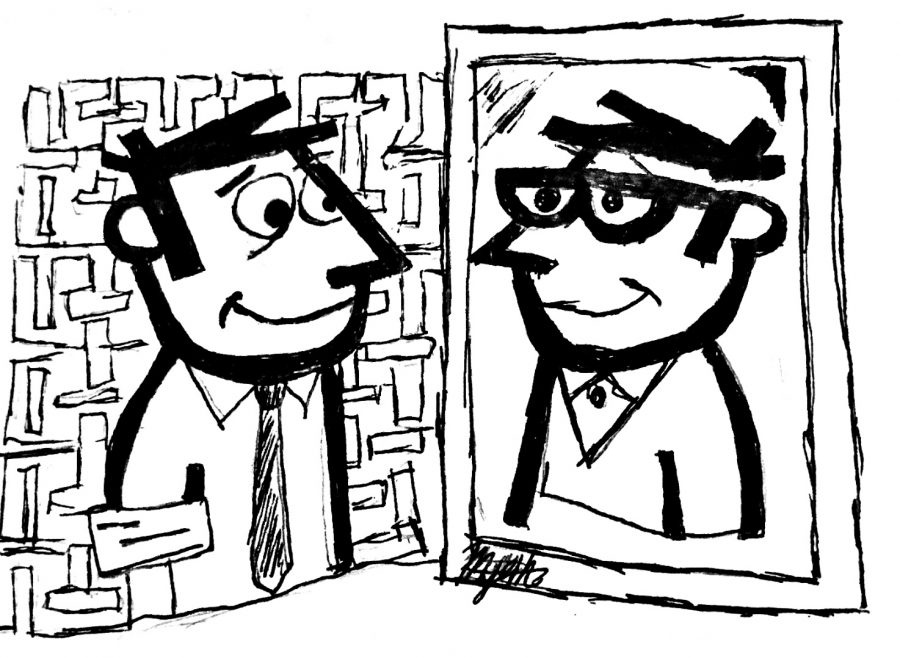Looking into false mirrors
Comparisons of self, others creates negative impacts; reflection is true goal
As the population grows across the world, so does the amount of diversity. In the same manner, the total number of similarities also grows. Expressing each person’s identity has become a theme of today’s society. However, people are constantly comparing themselves against others. In a school setting, this theme occurs regularly.
One of the questions students ask others involving transcripts is, “What is your class rank?” The idea of class rank gives students a set place that compares them to others in their grade. In many ways, this system has flaws. Sometimes, students aiming for the top 20 in their class will see those above them as their rival; the people they need to beat. This can create tension and cause friendships to harden.
The National Association of Secondary School Principals believes that class rank should “allow students to improve through persistence and hard work and should ensure that the success of one student should not be at the expense of another student.”
Students should be working at their own level of success rather than overloading themselves with difficult classes. Instead, students should aim to work their hardest on their level instead of focusing on how others are doing.
This leads to the reasoning that not every person has the same strengths and weaknesses. After a test, students will look to see what others got on the same test. Sometimes, others in the class may use another student who usually scores high as a benchmark on assignments. If others in the class get a higher score than that student, then they will usually point it out. For the student, this can be degrading.
Classmates’ comparisons may not just be about themselves to others, but others against their siblings. Connections by blood are subject to analogies from others. Older siblings create a template for younger siblings that others expect them to follow. From teachers and students alike, these expectations can affect the way that the younger siblings go about their work. These expectations can degrade one’s sense of individuality.
In addition, groups and talents one may possess play a part in many comparisons. By being in a group — whether it is a friend group or club — there is almost certainly at least one similarity. Many times, others may group those people together based on those similarities and only interact with them for those similarities. This can lead to partial suppression of one’s true personality. Due to the interactions based only on the group, some students may focus on the commonalities within the group. The stereotyping and comparison of groups can censor parts of individuals’ true personality.
It is not the abilities of others that displays what each person can do on their own. Though someone might be faster, smarter or more artistic, it doesn’t annul someone’s abilities. Others may have worked longer or may have more talent in that specific area; comparisons may make the situation seem hopeless. As such, people shouldn’t consider what others can do, but rather what they can do.
A respectable comparison is one makes against him or herself. Reflecting on one’s past, acknowledging who they are now and looking to whom they want to be in the future is a positive comparison a person can make. Reflection on the past, tied together with glances at the future, can help an individual grow through past experiences and how they have developed as a person. As a result, reflecting on now, the past and the future can strengthen an individual, aid growth and inspire future development.
Though comparisons are prevalent today, it is up to individuals to make comparisons of themselves to reflect on who they are and what they want to achieve. It is up to people to develop their own skills to become an accomplished person instead of looking at other people to shape what they look and act like. Only by looking at oneself, not comparing oneself to others, can one achieve a true reflection.



